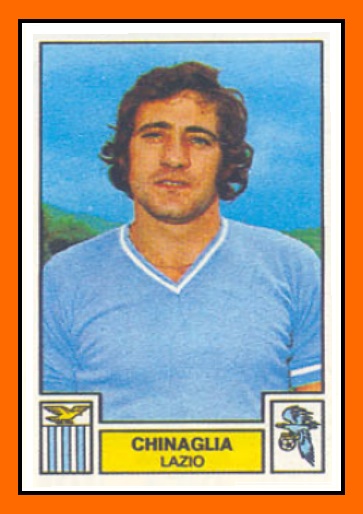 Giorgio Chinaglia died yesterday, April 1, in Florida at the age of 65. The sad news brought back a flood of memories. I remember how as a kid in Rome in the 1970s, my grandfather had a funny habit of responding to my detailed stories about meaningless youth football matches by saying: “You are just like Giorgio Chinaglia.” Maybe it was the curly hair, pronounced chin, and slightly curved shoulders. Or maybe it was the unmitigated joy of my goal celebrations, I don’t know.
Giorgio Chinaglia died yesterday, April 1, in Florida at the age of 65. The sad news brought back a flood of memories. I remember how as a kid in Rome in the 1970s, my grandfather had a funny habit of responding to my detailed stories about meaningless youth football matches by saying: “You are just like Giorgio Chinaglia.” Maybe it was the curly hair, pronounced chin, and slightly curved shoulders. Or maybe it was the unmitigated joy of my goal celebrations, I don’t know.
I was not a Lazio supporter, but I liked how my grandfather connected me to the prolific striker who had recently won the scudetto (Italian league title) and then had joined the most glamorous team in the world: the New York Cosmos. Growing up in a bicultural family (American dad / Italian mom), I also shared a linguistic connection with Chinaglia. His family had immigrated to Wales after World War II (his father found work in a foundry) and he had started his professional career at Swansea City before returning to Italy. This Welsh background explained his “Long John” nickname, inspired by Juventus’s Welsh center-forward John Charles of the late 1950s and early 60s. I was too young to watch the broadcasts of the 1974 World Cup, but I knew of Long John’s performance in Italy’s opener against minnows Haiti. With Italy leading 2-1, Chinaglia was substituted and refused to shake coach Valcareggi’s extended hand, offering instead a theatrical “vaffanculo” (“fuck off”) for the television cameras. Needless to say, that was the end of Chinaglia’s Italy career.
Author: Peter Alegi
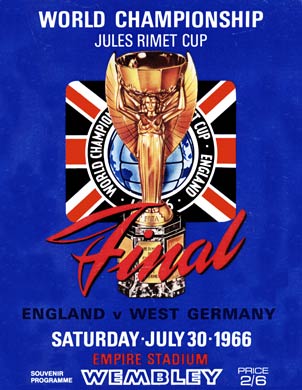 Author, scholar, and journalist David Goldblatt is probably best known for his sacred text of football studies: The Ball is Round: A Global History of Soccer. On Thursday, March 15 (The Ides of March!), Goldblatt shared work from his new project — a sort of mini-Ball is Round book on the cultural politics of football in Britain after 1989.
Author, scholar, and journalist David Goldblatt is probably best known for his sacred text of football studies: The Ball is Round: A Global History of Soccer. On Thursday, March 15 (The Ides of March!), Goldblatt shared work from his new project — a sort of mini-Ball is Round book on the cultural politics of football in Britain after 1989.
In an engaging public talk at the Department of History at Michigan State University, Goldblatt used the upcoming European Championships in Poland/Ukraine and the London Olympics, to explore the changing relationship between football, Britishness, and Englishness in the age of devolution.
The spontaneous popular theater of the Euros, he argues, carves out an arena for England’s traveling fans to declare their “Englishness.” Fans’ rejection of the Union Jack in favor of the flag of St. George and their performance of particular national songs are cases in point. In the case of the 2012 Olympics, Goldblatt notes that there will be no “England” in the tournament because the International Olympic Committee, unlike FIFA, deals only with sovereign states. (Britain has four members in FIFA: England, Scotland, Wales, and Northern Ireland.) The formation of the British Olympic football team thus becomes very contentious in a postdevolution context, with only England firmly supporting it. A striking contemporary example of football’s singular significance for popular national identity.
Listen to Goldblatt’s talk here.
Lebanon United?
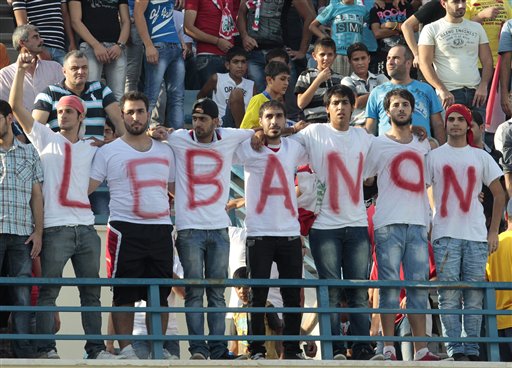
“Every Saturday was derby day in Lebanon,” noted James Montague’s football travelogue When Friday Comes, “where Sunni met Shia, Shia met Druze, Christian met Muslim. Violence was inevitable.” In an article in today’s New York Times, Montague revisits football in Lebanon. The article casts a spotlight on Theo Bücker, the German coach of Lebanon’s national team, on the eve of the biggest game in Lebanon’s history: a World Cup qualifier against the United Arab Emirates. Needing a single point to earn a place in the final stage of the Asian Confederation 2014 World Cup qualifying round, Lebanon rallied around the team.
I don’t care if someone is Christian or a Muslim,” Bücker said. “There are only good and bad football players, that is all.” He goes on to add with the confidence typical of outsiders: “The Lebanese are tired of all the problems of the past . . . They are happy that this is uniting them.” In the end, UAE won 4-2, but Lebanon still managed to move on to the final ten.
Read the NYT article here.
Further Reading:
Danyel Reiche, “War Minus the Shooting? The politics of sport in Lebanon as a unique case in comparative politics,” Third World Quarterly, 32, 2 (2011): 261-277.

Professional soccer in the U.S.A. took center stage at the Football Scholars Forum on Friday (Feb. 24). Ray Hudson not only braved the “football think-tank,” but also answered questions in the inimitable style he brings to broadcasting a Clásico on GolTV.
Using the documentary film Once in a Lifetime: The Extraordinary Story of the New York Cosmos, FSF discussed Cosmos and the NASL, as well as the representation and construction of history on film. “We had it all, man!” said Hudson looking back fondly to his playing days with the Ft. Lauderdale Strikers. The audio recording of the conversation is here.
FSF is holding its next online session on March 16, 2pm EST. Author David Goldblatt will be in East Lansing, Michigan, to discuss the second half of his book, The Ball is Round. FSF’s discussion of the first installment is here. For more information, contact Alex Galarza: galarza1[AT]msu[DOT]edu
Chipolopolo Champions of Africa
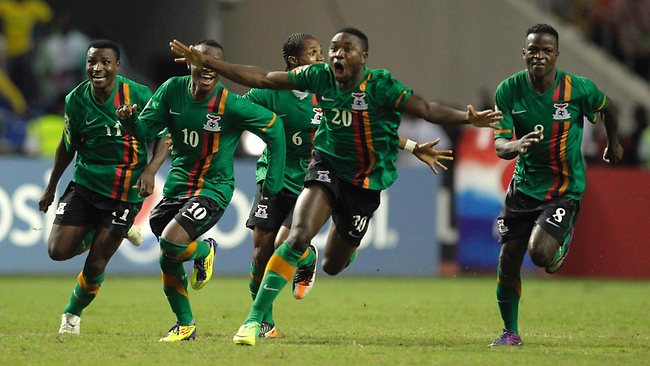
The room was tense. Zambia and Ivory Coast had played their hearts out in a goalless draw over 120+ minutes and now it came down to penalties. With me, watching a good stream on the big screen at work (on a Sunday), were three Zambians, a Kenyan, two American soccer aficionados, and my family.
Drogba had missed a penalty in regulation so the momentum seemed ever so slightly to favor the underdog Zambians. Chipolopolo prayed and prayed on the pitch, one of our Zambian friends commented wryly: “I didn’t know Zambians were so religious!”
As Zambia’s French coach Herve Renard would tell the media after the game, “I know we’re not the best, but we have a strength and force that animated our team.”
With the score tied at 7-7 in the shootout, Arsenal’s Gervinho shot wide and Sunzu stepped up for Zambia’s second chance to win.
Gooooooool!!!! The Zambians roared.
“I can’t believe it happened in my lifetime,” one of the Chipolopolo supporters exclaimed. We saluted the champions of Africa. Cell phones came out in an attempt to reach Lusaka.
The day after, not many people are at work, or so it seems . . . the Lusaka Times reports that “a thunderous welcome awaits the newly crowned Champions of African football” at Kaunda airport today.
With eight of the Zambian players based in South Africa, a national anthem based on Nkosi Sikelel’, and venerable liberation struggle ties, some of us delight in the fiction that a little piece of South Africa won as well.
That Chipolopolo became champions of Africa in Libreville, where the 1993 air crash killed the greatest Zambian team ever, made this triumph all the more special.
Viva Chipolopolo Viva!
Death Match for the Egyptian Revolution?
Egypt’s worst-ever soccer disaster: at least 73 people died at a match in Port Said on Wednesday. “This tragedy is not simply a story of a match gone horribly awry,” writes James Dorsey at The Turbulent World of Middle East Soccer blog. “It will have important and wide-ranging political ramifications.” (Full post here.) The causes for the tragedy are unclear.
According to the New York Times, “Politicians, fans and Egyptian soccer officials all faulted the police as failing to conduct the standard gate searches to prevent fans from bringing knives, clubs or other weapons into the match.” Did the ultras — hard-core supporters — of home side El Masry and Cairo heavyweights Al Ahly walk into a trap?
Tensions between the ultras were high in the build up to the match. Taunts and scuffles in the terraces halted the game early on. El Masry won 3-1, but as the final whistle blew fans invaded the pitch and chased the Al Ahly players. Egyptian television footage (see above) shows undermanned law enforcement standing passively during the chaos.
“People here are dying, and no one is doing a thing. It’s like a war,” said Al Ahly star midfielder Mohamed Aboutrika; “Is life this cheap?” He then promptly announced his retirement from the professional game.
“The ultras whether they walked into a trap or initiated the Port Said violence have no doubt again dug themselves into a hole,” Dorsey observes (full post here). “This time round it will be a lot tougher to dig themselves out. They have played into the hands of the military and the police in dealing a lethal blow [to] contentious street politics as opposed to electoral politics and the horse trading associated with it.”
We at Footballiscominghome extend our condolences to the families of the victims.
***
Additional coverage of the Port Said disaster and its aftermath here.
This just in from Alex Galarza: NPR’s Andy Carvin is curating tweets live from Cairo @acarvin. Osama Diab at The Guardian also has a worthwhile story.
Read David Goldblatt’s “Egypt’s Political Football” here.
Further Reading: Paul Darby, Martin Johnes, Gavin Mellor, eds., Soccer and Disaster: International Perspectives (London: Routledge, 2005).
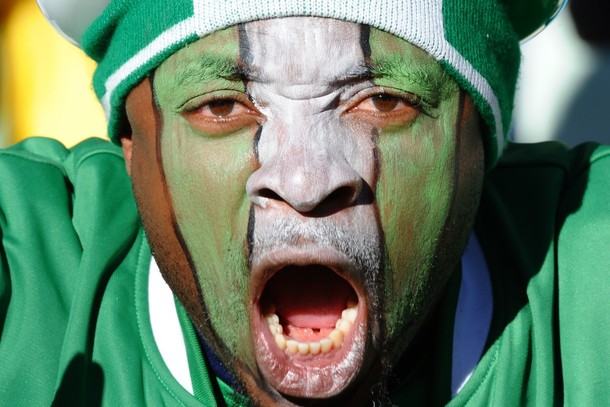
The Times (London), January 25, 2012
By Matthew Syed
It is no coincidence that Alex Salmond, the wily and rather combative leader of the SNP, is fighting to hold the referendum on Scottish independence in 2014. This, of course, is partly to do with the anniversary of the Battle of Bannock-burn, where the Scots gave the English a bit of a kicking in the First War of Scottish Independence.
But, perhaps even more significantly, it is also about the Commonwealth Games in Glasgow and a recognition that the patriotism that invariably surrounds great sporting occasions could lend the campaign for secession unstoppable momentum. No wonder David Cameron wants to hold the referendum early.
Few politicians, let alone sports fans, have failed to recognise the curious alchemy of events such as the Commonwealth Games, not to mention the Olympics and World Cup. It is not just the anthem-singing and the flag-waving, but a sense of unity that is conspicuous by its absence at just about any other time in national life – with the possible exception of a royal wedding.
We are divided by religion, by political affiliation, by cultural allegiance and by our attitudes to Simon Cowell but, when David Beckham is charging around against Greece, or Sally Gunnell is leaping around Montjuic, or Tim Henman is getting edgy against Pete Sampras in SW19, we are bound up in a shared national story. Look hard and you can almost see the pages moving.
In this sense the Africa Cup of Nations, which started at the weekend, is perhaps the most important sporting event in the world. Not in terms of the football, of course – although the European club stars who return home to represent their homelands lend stardust to an event that improves in quality with each incarnation – but rather in terms of the politics of identity. As the players of Niger and Libya and Equatorial Guinea cruise around the pitch, you can see history in the making.